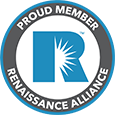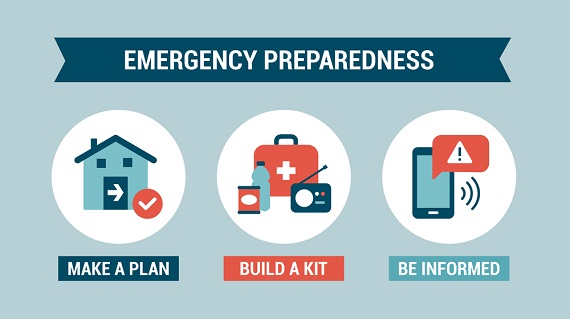Last year was the fifth year in a row that 10 or more weather and climate disasters in the US logged at least $1 billion of associated losses. If you think 2020 threw everything it had at us and will now ease off, think again. While we all have our hands full with navigating the new realities of life under Covid19, nature is relentless and doesn’t slow down. Most Americans agree. According to a recent survey by American Institute of CPAs (AICPA), 61% or respondents said they were likely to be personally affected by a natural disaster in the next three to five years. Almost one in five said that prospect was highly likely. (see ThinkAdvisor: Few Americans financially prepared for a natural disaster: survey.)
Despite that, “… only 15% of respondents said they had created a disaster plan to protect their finances. Worse, 27% had not taken any steps at all to prepare for a natural disaster.” That’s rather daunting. Think about the problems and logistics in a hurricane, massive wildfire, or flood evacuation in the middle of a pandemic: public emergency resources are already strained. Plus, social distancing measures important to disease prevention will make things like finding emergency shelter and supplies even more challenging than normal at a time when many are suffering financial strain and economic strain from job loss.
AICPA has suggestions for financial emergency prep steps in their report on the survey:
Banking Without the Bank — If your bank branch is closed due to the pandemic, you may need some new options for accessing cash, depositing funds, and checking your account activity. Now is a good time to investigate alternative locations where you can use your ATM card to obtain cash without additional fees, and perhaps mobile banking which can allow most banking activities including check deposits and transfers between accounts.
Insurance Coverage — If you haven’t recently reviewed your coverage with your insurance agent, you’ll want to be sure your homeowner’s or renters insurance is up to date for changes in value, valuable items you’ve added like jewelry or watches, and special risks you may face like flooding. As a first step, be sure you know how to contact your agent, who may be working remotely or with a reduced staff under current conditions.
Safe Deposit Box — If you have documents in a safe deposit box that you may need after a disaster, you may find that your local bank branch is closed or operating under restrictions. You can check with the bank’s main office to learn how to access the box if local restrictions apply and may continue.
Wills, Powers of Attorney, and Health Care Proxies — If disaster results in incapacity, loss of a loved one, or serious injury, you’ll want to be sure that your legal paperwork is up to date. Your attorney may be working remotely under pandemic- related conditions. If your papers need an update, it pays to get a head start in contacting the professionals you will look to for help and advice.
Employment-Based Programs — Visiting your human resources department to check on items that may help you manage through financial survival in a disaster, like your disability coverage or ability to borrow from a 401(k) or similar retirement plan, is likely not an option if your workplace is closed due to the pandemic. You can take steps now to learn how to get the information you need, and request any needed updates, by phone or online.
AICPA offers more help at the 360 Degrees of Financial Literacy portal – see Disaster Action Plan: 5 Key Steps to Protect Your Family and Finances.
Other emergency prep planning tools:
- Red Cross: Preparing for Disaster During COVID-19
- FEMA: Preparing for Hurricane Season During the COVID-19 Pandemic
- CDC: Emergency Preparedness and Response
- Ready.gov: Make a Plan
- And don’t forget your local independent insurance agent!
Reprinted from Renaissance Alliance – no usage without permission.


